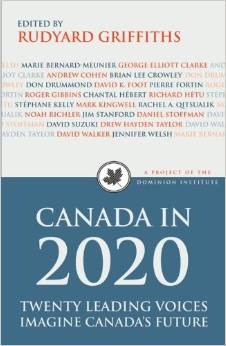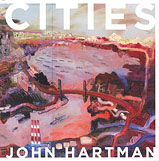A comical and revealing account of what it's like to run for office with no political experience, little money and only a faint hope of winning, told first-hand by celebrated writer Noah Richler.
The Candidate, Fear and Loathing on the Campaign Trail, non-fiction, Doubleday Canada, October 2016, 384pp
What We Talk About When We Talk About War, non-fiction, Goose Lane Editions, April 2012, 371 pp
De la fleur au fusil, non-fiction (translation of What We Talk About When We Talk About War), Leméac Editeur, October 2013, 400 pp
In 2006, I was very upset by the rhetoric that was being used as part of a deliberate assault on existing ideas about Canada by a government intent on creating a more readily combative nation. Of course, this sort of dynamic is not new, and this book applies the ideas about story that I had developed in my first book to the political arena. It examines, very specifically, the phrases and stories and narratives that were used by government and media and members of the Canadian Armed Forces and eventually the people, to affect Canada’s entry into, through, and out of the war in Afghanistan but, beginning with Homer, with historical precedents and examples in mind. It was shortlisted for the Governor-General’s Literary Award for Non-Fiction, the Writers' Trust Shaughnessy Cohen Award for Political Writing and the John W. Dafoe Book Prize, and long listed for the Charles Taylor Prize for Literary Non-Fiction, too. It didn’t win, I like to think because it was too contentious. I’m allowed. I’m very proud of it.
This is My Country, What’s Yours? A Literary Atlas of Canada, non-fiction, McClelland & Stewart, September 2006, 476 pp
Mon pays, ç’est un roman, non-fiction (translation of my This is My Country, What’s Yours), Editions du Boréal, June 2008, 512 pp
I’d been away from Canada for nearly twenty years before I started this book. Coming home, I was struck by just how absurd the straight lines of Canada’s borders are and thought, “I’m going to chuck them over my shoulder and start again.” As stories have always been my way in, I travelled for a few years taking to nearly 100 novelists, poets and storytellers about their ideas about Canada for this cultural portrait of my country dear to me. And it did alright. It won the 2006 B.C. Award for Canadian Non-Fiction, was nominated for the Writers’ Trust Non-Fiction prize, and made all the major Book of the Year lists and was even chosen by Macleans as one of the Top ten Books of the Decade, in 2010. Its canvas is Canadian, but its ideas about how stories work are universal. I think of it as my happy book.
Torngat Mountains, A New Waiver: A Northwords Story, fiction, House of Anansi Press, September 2012
Anthologies and Introductions
Roch Carrier’s La Guerre Trilogy, non-fiction (introduction only), The House of Anansi Press, July 2013, 9 of 284 pp
Anne Hébert’s Kamouraska, non-fiction (introduction only), The House of Anansi Press, October 2012, 6 of 146 pp
“Christopher Hitchens in conversation with Noah Richler,” in Hitchens vs Blair, Be It Resolved Religion is a Force for Good in the World, non-fiction, The House of Anansi Press, April 2011, 12 of 82 pp.
“Canada and its peacekeepers in 2020” in Canada in 2020, Twenty Leading Voices Imagine Canada’s Future, non-fiction, Key Porter Books, June 2008, 14 of 217 pp
Coming Through, Three Novellas by David Helwig, non-fiction (introduction) Bunim & Bannigan Ltd, September 2007, 5 of 234 pp
Cities, John Hartman, non-fiction (introduction), Altitude, July 2007, 11 of 144 pp












